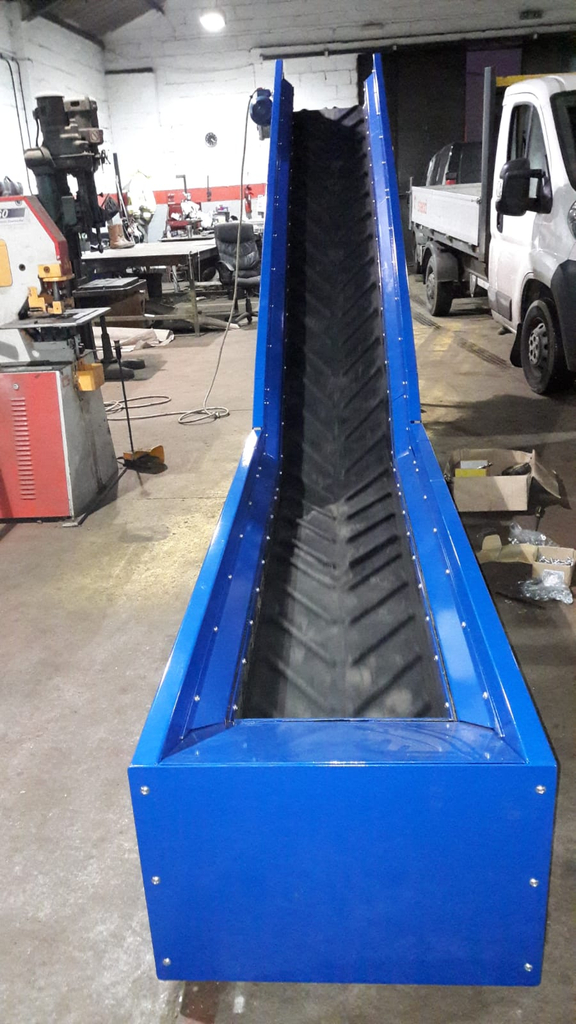Preston Plastics in Lancashire provides a vital service to reduce the quantity of plastic waste, by diverting it away from UK landfill.
The facility processes post industrial plastic waste and through a research and development programme, the team has identified ways to manage hard-to-process items, the success of which has significantly increased demand at the facility.
To improve efficiency at the plant which operates 24/7 within an ever-growing industry, the team at Stead Engineering were commissioned to design and install a swan neck conveyor - four metres in length - on an incline, to act as a feeder bridge between two conveyors already in-situ, to then move product to another level for further processing.
Swan neck conveyors are often used for transferring goods onto another part of the system, to bridge over obstacles or, for any instance where items need to be conveyed either upwards or downwards.
Flights (dividers) can be added at any distance apart to prevent items flowing back down the belt. Preston Plastics’s conveyor required side walls to keep the loose items contained throughout their journey and it also had the variable speed mechanism for the operators to manage.
Nathan Stead, Managing Director of Stead Engineering says:
“Swan neck conveyors can vary widely depending on the product lines and environment they operate within. The tilt can be tailored to the specific line it is joining up, and can help to improve efficiency once the new conveyor is in place."
"Recycling plastic in the UK is vital to prevent product going to landfill and we see that the industry is growing as demand has increased for our conveyors within recycling companies. These businesses are finding ways to recycle different types of plastic that were previously unable to be reused and it is great for us to be able to support these types of businesses as they are helping to reduce the negative impact on the environment.”
For further information on Stead Conveyors, please call 01482 236556 for advice, quotes and information.


